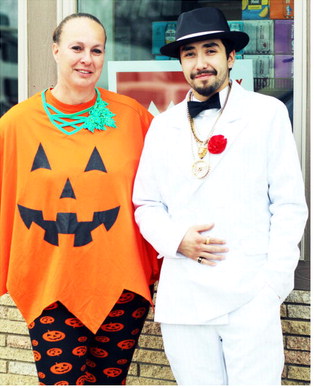Chronic Disease And COVID-19: What You Need To Know
COVID-19 is a new kind if illness caused by a virus. People can carry and spread the virus without feeling sick. It causes fever, coughing and shortness of breath.
Anyone can get sick from COVID-19, but people who are older than 65 and people of any age who have a serious chronic disease are the most likely to become severely ill. People with any of the following chronic conditions should be extra careful to protect their health from COVID-19:
•asthma and lung disease;
•heart disease;
•unmanaged diabetes;
•severe obesity;
•or weakened immune systems because of diseases like HIV or people that are going through cancer treatment.
People with any of the underlying chronic diseases above can make healthy, everyday life choices to help prevent and improve their chronic disease as well as their well-being overall.
Some of the most important healthy choices to protect yourself and your family include quitting tobacco use, getting more physical activity and eating nutritious meals and snacks. A healthy lifestyle helps make all bodily functions work better, including immunity. Eating healthy diets, with plenty of fruit and vegetables, keeping physically active, quitting smoking, limiting or avoiding alcohol intake and getting plenty of sleep are key components of a healthy lifestyle.
Remember to take regular medications on time and as directed. If needed, reach out to your healthcare provider to ask about obtaining an extra supply of medications in case you cannot get to a pharmacy or clinic. Make time to measure your blood pressure if you have hypertension or take your blood sugar if you have diabetes. Use the telemedicine or telehealth option for a regular medical visit. Your healthcare provider can tell you if your insurance company offers this option.
If you or a family member starts to get a fever, cough or shortness of breath, it may be because of COVID-19. If this occurs, you should take steps to protect your family members from getting sick. Call your healthcare provider and follow the advice on what to do next. Do not go to the emergency room unless your provider tells you to do so. If you have a job or go to school, let them know that you are sick. You should not continue to go to work or school.
Everyone should follow CDC’s recommendations to prevent COVID-19:
•Avoid crowded places and stay at home.
•When you are outside your home, stay at least two arms’ length away or six feet apart from other people.
•Wash your hands often with soap and water for at least 20 seconds. If you do not have soap and water available, use hand sanitizers that contain at least 60 percent alcohol.
•Avoid touching your eyes, nose and mouth with unwashed hands.
•Cover your cough or sneeze with the inside of your elbow.
•Clean objects or surfaces in your home that people touch frequently, such as door knobs and keypads.
If you have any of the following non-communicable diseases, remember to safeguard your mental health. Social distancing can be hard to manage especially when having to do so for an extended period of time. Here are some steps to take specific to each non-communicable disease.
Diabetes
If you have diabetes, remember to continue to manage your blood sugar levels. People with poorly controlled diabetes are more likely to be susceptible to COVID-19. Remember to:
•Make sure to monitor your blood sugar regularly and to take your medications as directed. Contact your healthcare provider to help you get an emergency supply of medications.
•Follow your healthcare providers advice about healthy eating and increasing physical activity.
•Stop smoking, as smoking can make it more likely to have a heart attack or a stroke.
Heart Disease
COVID-19 can strain all of the systems in the body, which puts additional stress on your heart. If you have heart disease, you can:
•Ask your doctor about telehealth visits to manage your condition so you don’t have to go to the clinic.
•Maintain the medications and treatment plan that you and your doctor created.
•Keep up on healthy habits that your doctor recommends, including eating healthy, exercise, getting enough sleep and managing your stress.
•Stay up-to-date on other vaccinations that can protect you from diseases that stress your heart, including pneumonia and the flu.
Asthma
Not only does COVID-19 harm your lungs, so does asthma. To protect yourself from COVID-19 if you have asthma, you can:
•Follow your asthma action plan, if you have one.
•Take medications as directed. Talk to your doctor and pharmacist to be sure you have an emergency supply of prescription medications.
•Stop smoking and using e-cigarettes, which can cause lung damage.
Cancer
Certain types of cancer and cancer treatments can weaken people’s immune systems and make them susceptible to COVID-19. To protect yourself during this time, you can:
•Before going into your appointments for cancer treatment, ask your doctor how you can help protect yourself from catching COVID-19.
•Check if any oral medications that you are taking can be sent directly to you so that you don’t have to go to the pharmacy or the clinic.
•Your doctor may recommend other things that you should do to isolate yourself from others to help make sure that your treatments have the best chance of working.


